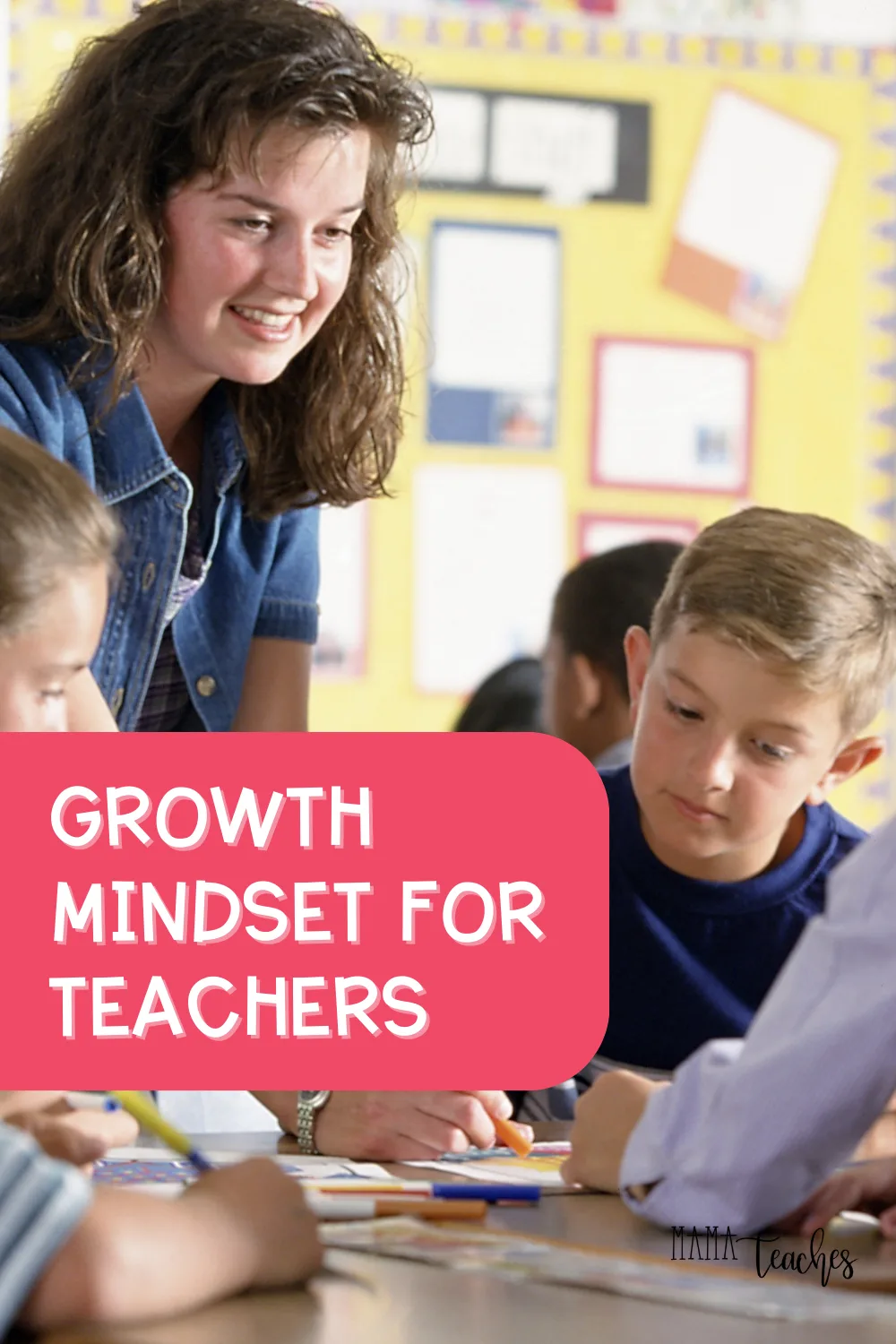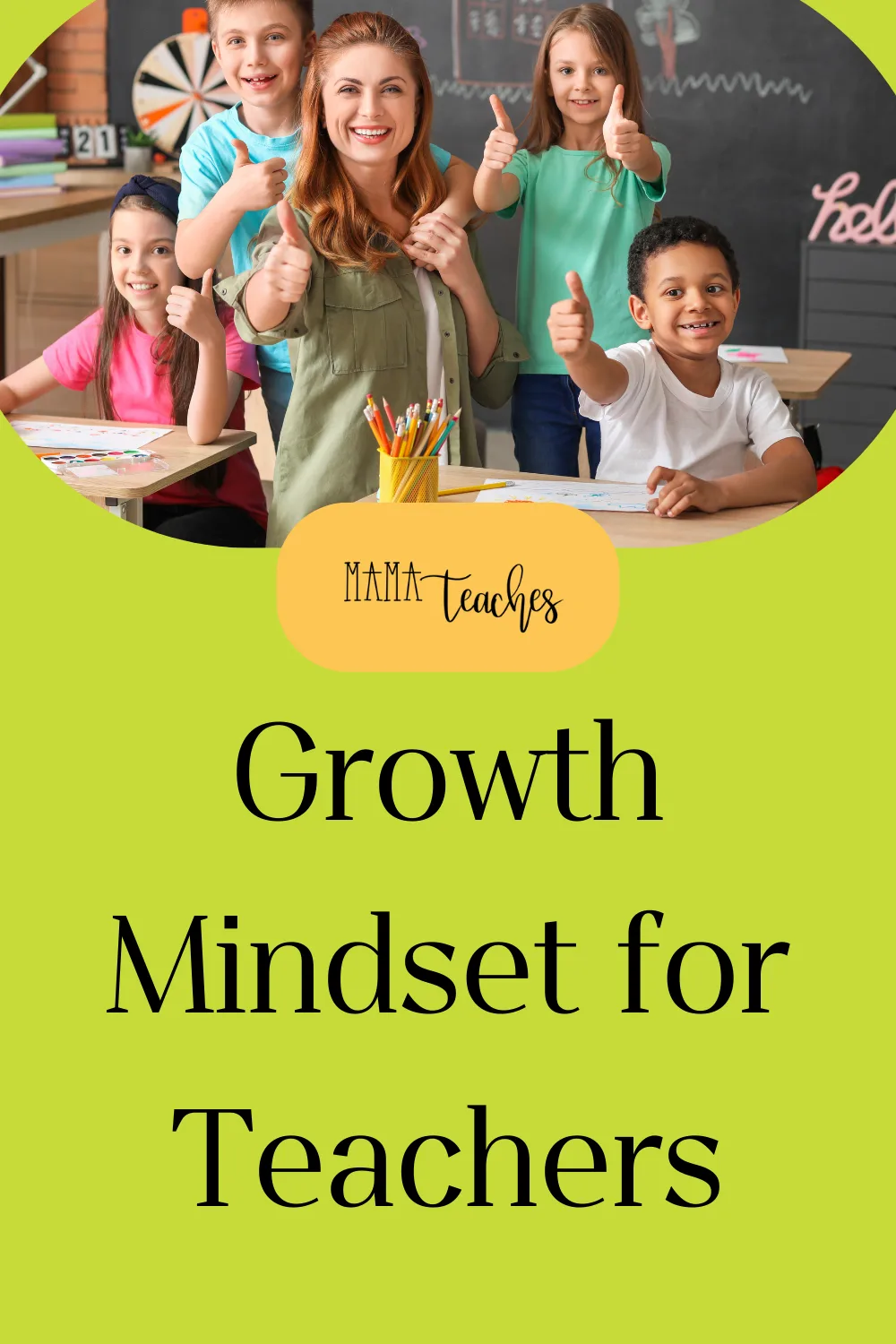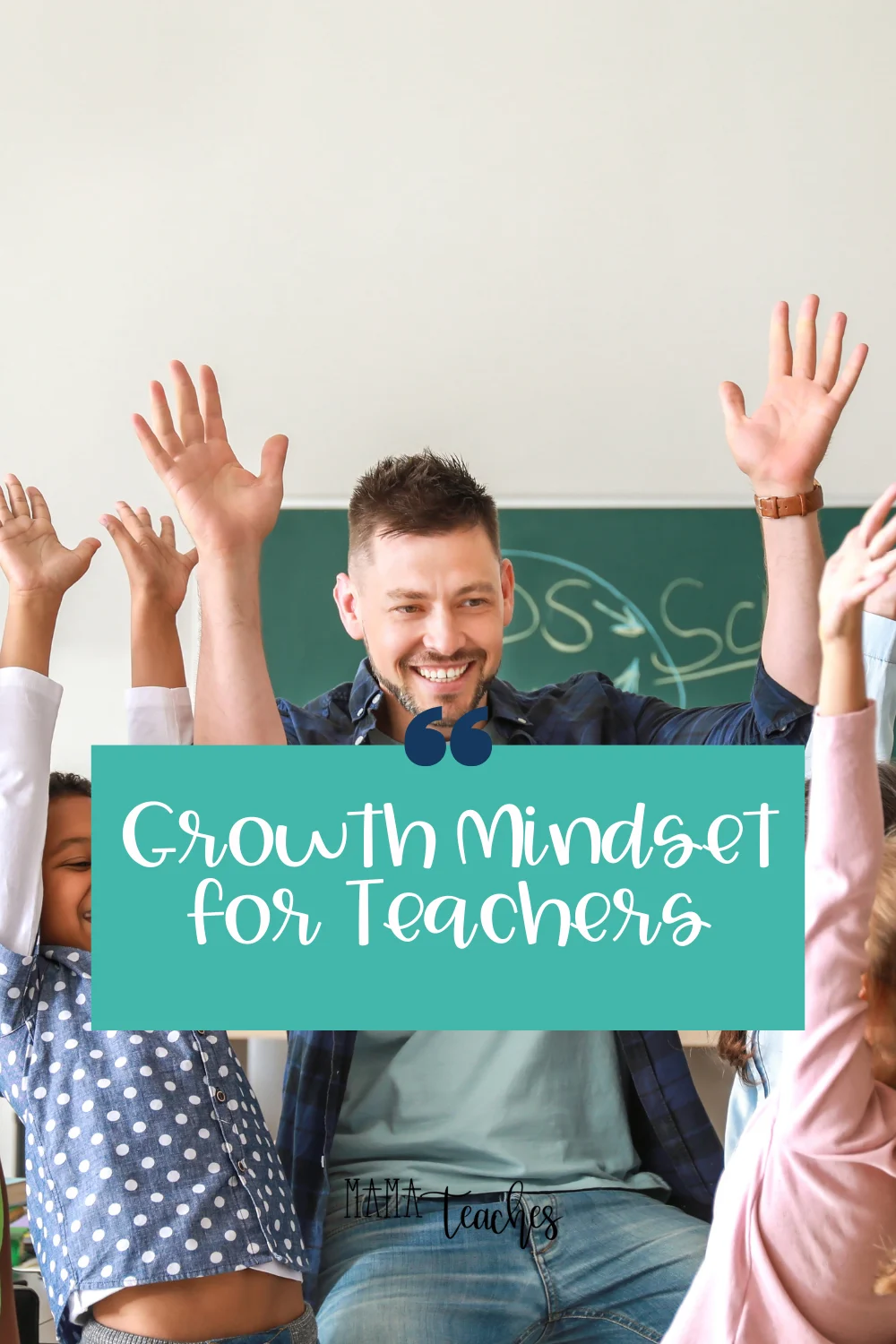If you want to have a positive outlook and improve in your job as a teacher, the secret is to have a growth mindset. Find out how to cultivate a growth mindset for teachers!

What Is a Growth Mindset?
Dr. Carol Dweck and her colleagues developed the growth mindset definition after years of research.
If a person holds a growth mindset, they believe that success stems from hard work.
A growth mindset encourages a person to tackle challenges because, through that experience, they can learn and grow.
They believe that everyone (including themselves) can become more confident, intelligent, and skilled if they are willing to put in the effort.
By contrast, a fixed mindset is the belief that everyone is born with a certain amount of innate ability.
You either have the capacity to be good at something, or you don’t.
No amount of effort will change anything.
A person with a fixed mindset may set the goal of trying to appear confident and capable rather than seeking opportunities to grow.
To learn more about a growth mindset vs a fixed mindset, check out this article.

This article contains affiliate links to things that you might like.
Which Mindset Do You Have?
Mindset is a spectrum. On one end, you have a purely fixed mindset.
With this mindset, everything is pre-determined by genetics. No amount of effort will change your rate of success.
On the other end of the spectrum is a purely growth mindset.
There is no fear of failure. Hard work will get you anywhere you want to go.
Most people lie somewhere in between.
Often, you can’t tell where your beliefs lie; you must examine your behaviors and ask, “Why did I choose that action?”
The answer stems from your mindset.

Why A Growth Mindset for Teachers Is So Important
A growth mindset is a game-changer for teachers.
Teachers with a Growth Mindset Avoid Comparison
If you believe that your level of success as a teacher stems from your experience and hard work, you are less likely to judge yourself.
You know that you are on your own journey. It’s pointless to compare yourself to others.
You will continue to improve your skills as a teacher as long as you receive instruction, work hard, and seek opportunities to grow.
Teachers with a Growth Mindset Seek Out Learning Opportunities and Mentorship
You may experience a paralyzing fear of failure if you have a fixed mindset.
When you have a growth mindset, failure isn’t a sign you are doing things wrong.
It’s a sign you are doing what you should–learning!
If you have a growth mindset, you are also more likely to own your need for help.
You feel more comfortable asking someone to be your mentor (since you aren’t trying to appear as though you have it all together).
You are more likely to read books or take courses for professional development because you believe change is possible.

Teachers with a Growth Mindset Are Less Likely to Experience Burnout
Teacher burnout often stems from the core belief that “things will never get better.”
You may believe you are at the root of the problem.
You may think, “I am terrible at classroom management,” or “I can’t plan efficiently.”
If you have a growth mindset, you believe that change is possible.
A bad day, a challenging semester, or even an exhausting year does not mean things will stay as they are.
You will respond to the challenge by learning, adapting, and improving.
You will be a better teacher because of your current circumstances.
Teachers with a Growth Mindset Are More Fun
Teachers with a growth mindset aren’t afraid of failing or even looking foolish in front of the class (or even their colleagues).
They are willing to try out-of-the-box ideas and strategies to reach their students.
They will sometimes try the unconventional approach.
If it’s a total flop, they don’t take it personally. They just learned what didn’t work.
Something else will.
As Thomas Edison famously said, “I have not failed. I have just found 10,000 ways that won’t work.”
Legos for math, personalized spelling sentences, thirty-second dance breaks…Teachers with a growth mindset are the most fun!

Ways to Develop a Growth Mindset for Teachers
You are not stuck with your mindset (only someone with a fixed mindset would believe that!).
You can cultivate a growth mindset.
Replace Negative Thoughts with Positive Ones
You know what it’s like to let the negative thoughts swirl around in your brain.
Positively reframe each negative thought.
You can even write them down.
For example, if you think, “I am so uncreative; my classroom looks terrible compared to others.”
Write it down, then draw a line through it.
Underneath, write a positive version.
“I have creative colleagues. I bet if I asked them for ideas for my classroom, that would spark my own creativity.”
You can even replace simple thoughts like “Today was terrible” with “Today was a hard day, but what is one thing I can do differently tomorrow?”
Then, put that one thing into action the next day.

Be Honest About Where You Are
You don’t need to be the Super Teacher.
Just be yourself.
You don’t need to pretend to have it all together.
You don’t need to manage it all on your own.
Ask for help from parents, colleagues, and the administration.
Seek out mentorship and teacher training.
By being authentic and owning up to your need for growth, you can avoid imposter syndrome and actually learn!
Focus Your Thoughts in the Morning
Do you have a quiet time in the morning?
Spend a few minutes thinking about your purpose and repeating growth mindset statements.
Frame your day with an outlook that seeks growth.

Keep a Gratitude Journal
Train yourself to see challenges as opportunities.
When you see challenges as a chance for growth, you can even record them in a gratitude journal.
Journaling can reduce stress and provide a way to process and reframe your thoughts positively.
Embrace the Word “Yet”
Give yourself grace by infusing your thoughts with the word “yet.”
“I don’t love teaching” becomes “I don’t love teaching yet.”
“I’m not good at parent-teacher conferences” becomes “I’m not good at them yet.”
Adding the word yet to your negative thoughts will train you to avoid the static state of a fixed mindset.
You do improve over time! Things do get better!
Acknowledge That Change Takes Time
Teaching is a complicated job.
You have to master so many skills to be an excellent teacher.
But you can master those skills one by one!
Give yourself grace and time.
Change will happen if you expose yourself to instruction, work hard, and don’t lose heart.

Developing a Growth Mindset for Teachers
Remember, mindset is a scale. You can slide yourself closer to a growth mindset with these tips.
You tell your students they can believe, achieve, and succeed every day.
So can you!
